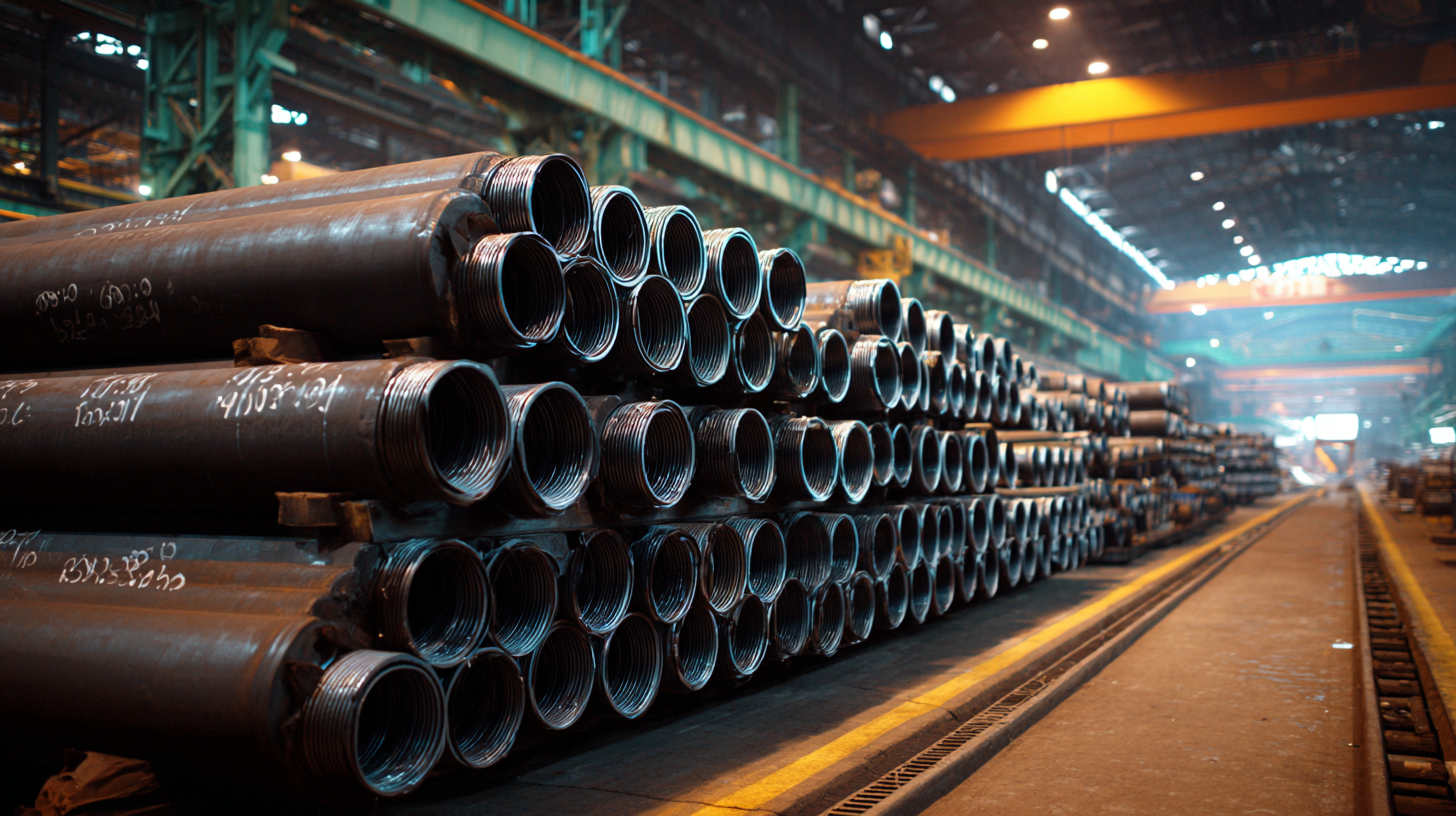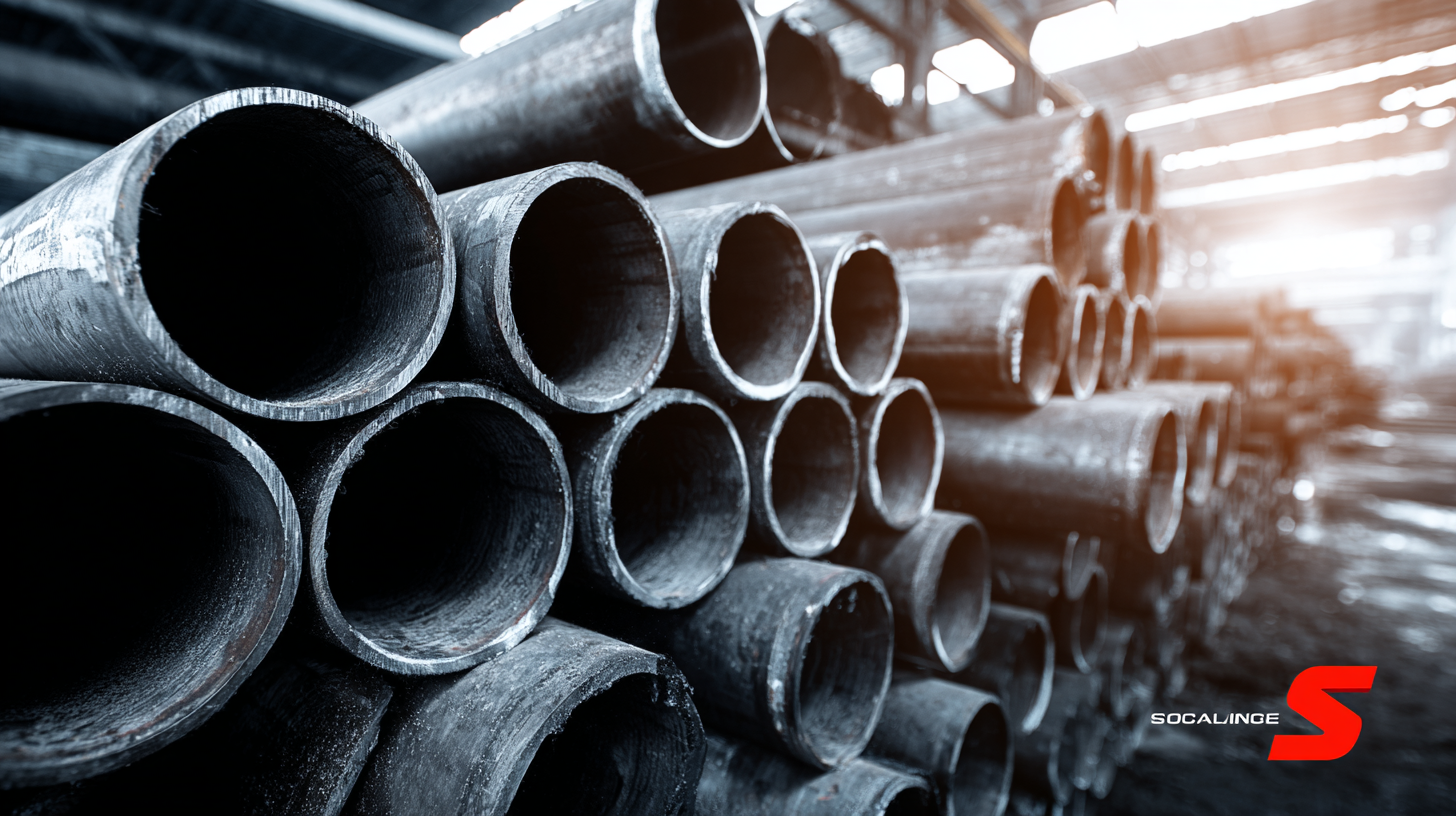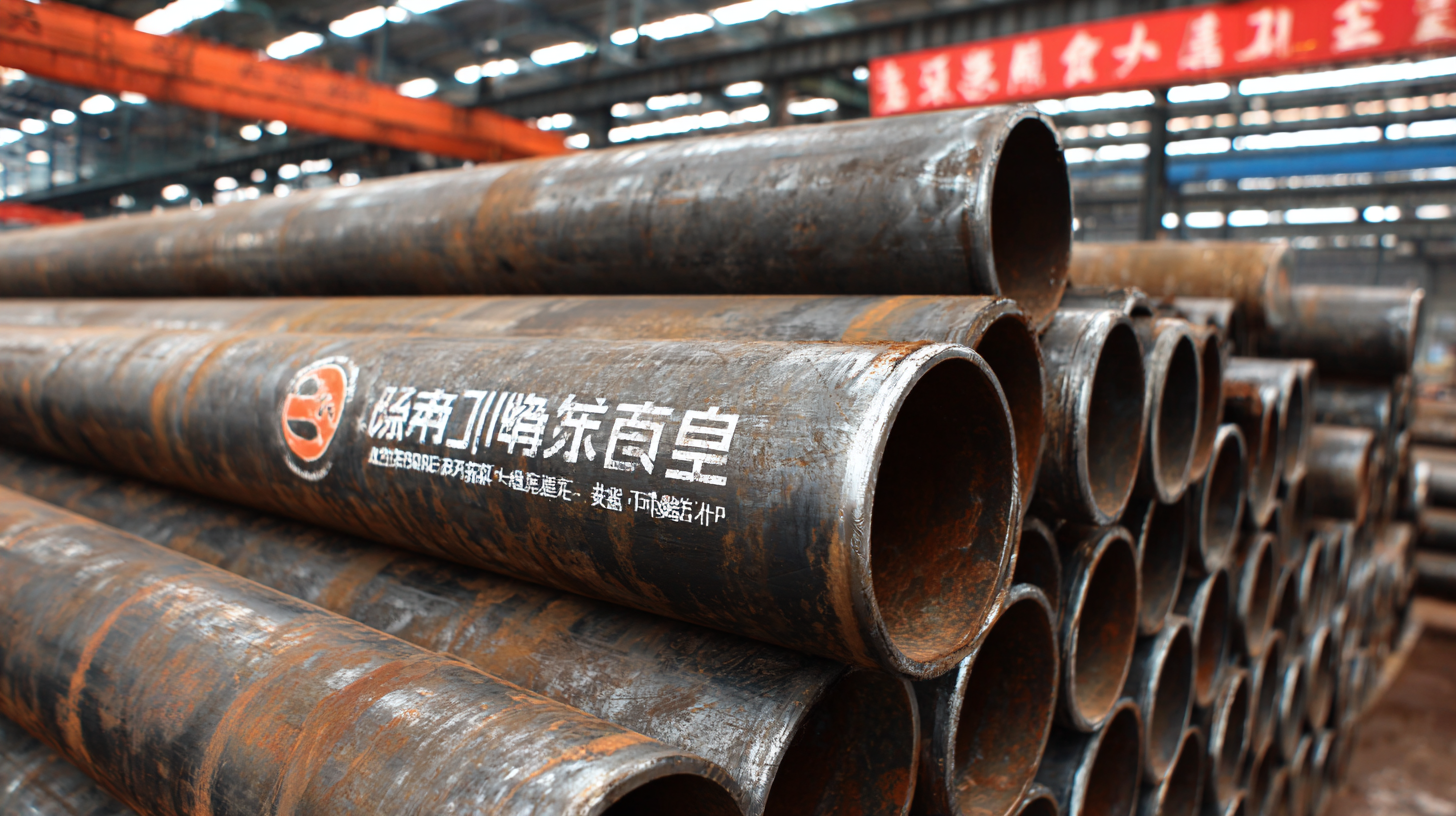In the realm of industrial applications, the production of Seamless Carbon Steel Pipe has emerged as a crucial component, due to its exceptional strength, durability, and versatility. According to a recent market analysis by Grand View Research, the global seamless steel pipe market is expected to reach USD 33.67 billion by 2025, reflecting a CAGR of 5.1% from 2019 to 2025. This growth is driven by increasing demand across sectors such as oil and gas, construction, and automotive. However, choosing a quality manufacturer becomes paramount to ensure compliance with industry standards and specifications. Factors such as material quality, manufacturing processes, and adherence to certifications like ASTM, ASME, and API play pivotal roles in the decision-making process. This blog will explore the critical criteria for selecting a reliable Seamless Carbon Steel Pipe manufacturer and provide a comparative analysis to aid industry stakeholders in making informed choices.

In the realm of seamless carbon steel pipe production, adhering to best practices is crucial for achieving high-quality products. One of the fundamental steps involves meticulous raw material selection. Manufacturers should focus on sourcing high-grade steel that meets industry specifications, ensuring uniformity and reliability in the final product. Regular quality checks and certifications from reliable suppliers also contribute significantly to maintaining high production standards.
Another essential aspect of seamless carbon steel pipe production is the precise control of manufacturing processes. Techniques such as extrusion and rotary piercing require skilled operators and advanced machinery to achieve optimal results. Implementing robust quality assurance protocols at every stage of production—from heating and rolling to final inspections—further enhances the durability and performance of the pipes. Routine maintenance of machinery also plays a pivotal role in preventing defects and ensuring the longevity of the production line, ultimately leading to superior seamless carbon steel pipes that meet industry demands.
| Dimension | Specification | Industry Standard | Material Grades | Testing Method |
|---|---|---|---|---|
| Outer Diameter | 1/2" to 36" | ASTM A106, ASTM A53 | A106 Gr. B, A53 Gr. B | Hydrostatic Test |
| Wall Thickness | 0.065" to 2" | API 5L, ASTM A335 | X42, X52 | Ultrasonic Testing |
| Length | Standard Length 20 ft | ASTM A999 | Seamless Pipe | Visual Inspection |
| Finish | Black or Galvanized | ASTM A862 | A53 Gr. A | Coating Thickness Test |
In the seamless carbon steel pipe manufacturing industry, adherence to key industry standards is essential to ensure the quality and performance of the final product. These standards encompass various aspects of production, including material selection, dimensional tolerances, testing methods, and finishing processes. For instance, organizations may refer to standards set by ASTM or ISO which outline the required mechanical properties and testing protocols—helping manufacturers achieve consistency and reliability.
Moreover, the market dynamics highlight a growing demand for specialized pipes such as large diameter and cold drawn seamless steel pipes. Projected growth in related markets, like the stainless steel seamless pipes sector, also points to an evolving landscape where industry standards must adapt to accommodate new applications and customer requirements. As manufacturers strive to meet these increasing expectations, the focus on maintaining rigorous quality standards becomes ever more critical in sustaining their competitive edge.
When evaluating manufacturers for seamless carbon steel pipe production, several key criteria emerge as essential for ensuring quality assurance. First and foremost is the manufacturer’s adherence to industry standards and certifications. Compliance with specifications such as ASTM A106 or ASTM A53 ensures that the pipes produced will meet the required mechanical properties and durability for various applications. A manufacturer that holds relevant certifications demonstrates a commitment to quality and reliability, which is crucial for projects that demand high-performance materials.
Another critical criterion is the manufacturer’s production processes and technology. Advanced manufacturing techniques, including seamless rolling methods and effective heat treatment processes, play a significant role in the overall quality of the final product. Manufacturers should also invest in state-of-the-art inspection and testing equipment to guarantee that each batch of pipes meets strict quality benchmarks. Additionally, transparency in the production process, including traceability of raw materials and thorough documentation of quality tests, can provide further assurance to clients regarding the integrity of the pipes they are purchasing. By focusing on these criteria, buyers can select manufacturers that prioritize quality and deliver top-notch seamless carbon steel pipes.
In the production of seamless carbon steel pipes, material specifications and rigorous testing play a crucial role in ensuring the quality and reliability of the final product. The selection of raw materials is paramount; manufacturers must adhere to strict industry standards such as ASTM A106 or ASTM A53, which specify the chemical composition and mechanical properties required for different applications. High-quality carbon steel with the right balance of strength and ductility ensures that the pipes can withstand high pressures and extreme conditions.

Testing procedures are equally important in maintaining seamless pipe quality control. Non-destructive testing methods, including ultrasonic testing and eddy current testing, allow manufacturers to detect internal defects without compromising the integrity of the pipe. Additionally, tensile tests and impact tests provide valuable data on the material's performance under stress. By implementing stringent material specifications and comprehensive testing protocols, manufacturers can produce seamless carbon steel pipes that meet or exceed industry standards, ensuring safety and durability for a wide range of applications.
The seamless carbon steel pipe industry is undergoing significant transformation driven by emerging technologies. Innovations such as advanced welding techniques, digital manufacturing, and artificial intelligence are revolutionizing production processes, improving quality, and enhancing efficiency. For instance, the integration of AI in predictive maintenance allows manufacturers to reduce downtime and optimize production schedules, ultimately leading to cost savings and increased output.

Tips for manufacturers looking to stay ahead in this competitive landscape include investing in automation and smart technologies. Implementing automated inspection systems can drastically minimize human error and enhance product quality. Additionally, companies should focus on leveraging data analytics to monitor production metrics in real-time, allowing for quicker adjustments and better decision-making.
Another noteworthy trend is the development of environmentally friendly production methods. As sustainability becomes a pressing concern, manufacturers are exploring ways to reduce waste and energy consumption. Transitioning to greener technologies not only aligns with global initiatives but also enhances brand reputation among environmentally-conscious consumers. By embracing these innovations, companies can ensure they remain competitive and compliant with industry standards.





